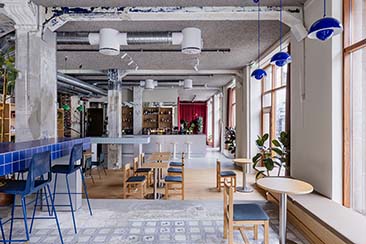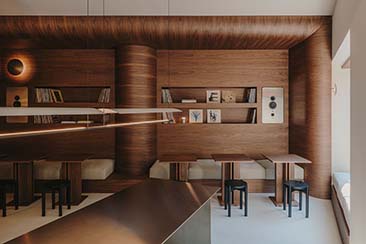Modern life is busy. Or at least it has been until the last few weeks. Does your diary typically brim with appointments? Does your smartphone ping every few minutes with app notifications? Are your cupboards overflowing with stuff? As the world slows down as a result of the Coronavirus, now is the ideal opportunity to take stock of what really matters.

Photo, Julia Joppien.
Most of us are guilty of owning too many unnecessary belongings. As our homes creak under the weight of more inessential objects, clothes and clutter, it’s easy to see how the bustle of modern living has creeped into our home life. What many of us don’t realise is too much chaos and clutter can take a toll on both your physical and mental health. In fact, studies have found a link between people who live with clutter and higher levels of stress. Those who live with clutter are at greater risk of suffering depression.
If you want to improve your quality of life, have more energy and worry less, then the best way to start is by decluttering. And there’s never been a better time.
Why declutter?
Roman emperor and stoic philosopher, Marcus Aurelius, says it perfectly: “Most of what we say and do is not essential. Ask yourself at every moment, ‘Is this necessary?'” That’s not to say decluttering is easy, as it’s not. For many us, it will require a change in mindset. Consumer culture tells us we constantly need new and more things. So, the process of decluttering means taking on a new habit. After all, they’re no point clearing out all your cupboards only to spend more money to fill them up again.
Also, there are heaps of benefits to decluttering. Living with less stuff helps us feel calmer, less anxious, improves sleep and boosts creativity. Not to mention it can save you lots of money (no more overspending on trivial items you don’t actually need or will ever use or wear). Finally, it also helps you keep your home clean and tidy—an added bonus if you suffer from allergies. And if you’re planning on selling your house in the future, you’re certainly more likely to attract buyers.
Here are four ways to help you declutter your home and life.
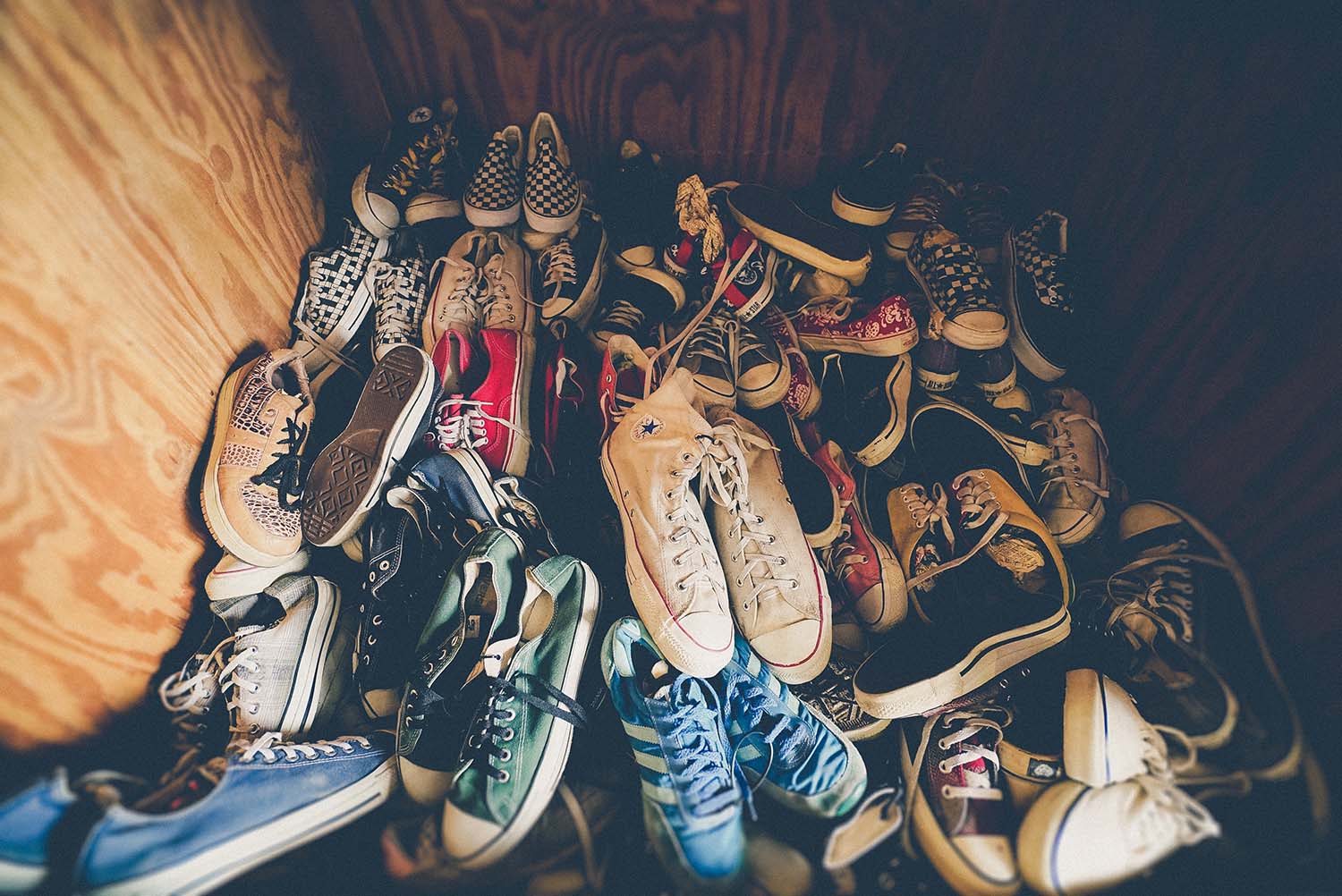
Photo, Jakob Owens.
1. Get rid of stuff that doesn’t light you up: We’re all guilty of impulse buying, making emotional connections with random objects and hanging onto stuff in case one day it comes in useful. But all these things just take up space—physically and psychologically.
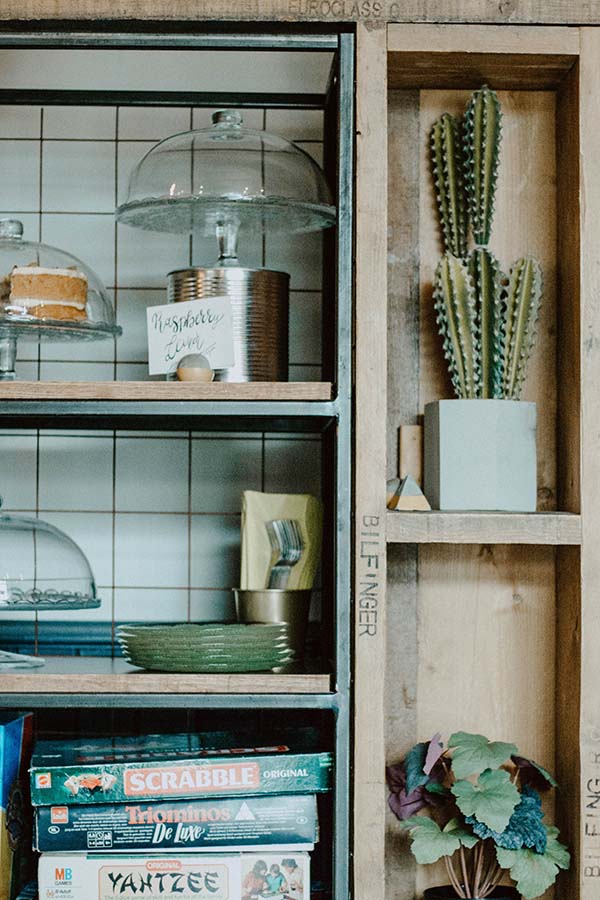
Photo, Daniel James.
One of the best ways to start decluttering your home is first to make a plan and secondly, start working on one room at a time. Hint: the kitchen is a good place to begin as it’s less likely to carry objects with emotional value.
Set up four piles: keep, bin, recycle, and give away.
Kick-off decluttering with a rubbish blitz. Set a timer, grab a bin liner and remove things like empty shampoo bottles, old shoe boxes, abandoned cosmetics, and broken hangers. Then you can go through each of the items discarding appropriately. For instance, if you want to tackle your wardrobe or cupboard, ask yourself the following questions to help you decide what to keep and what to throw:
— Do I really need this item?
— Have I used or worn it recently? (Tip, if it’s been untouched for at least 6-months it’s a good candidate for the ‘chuck it’ pile.
— Is it special? Does it hold memories?
If you answer ‘no’, then you could add to the item to the relevant pile.
Aim to remove at least 50% of your stuff. Get your friends and family involved; it will help you stay motivated. Then once a month, do a quick declutter. This will help you stay on top of it and deter you from going on a spending spree to replace everything.
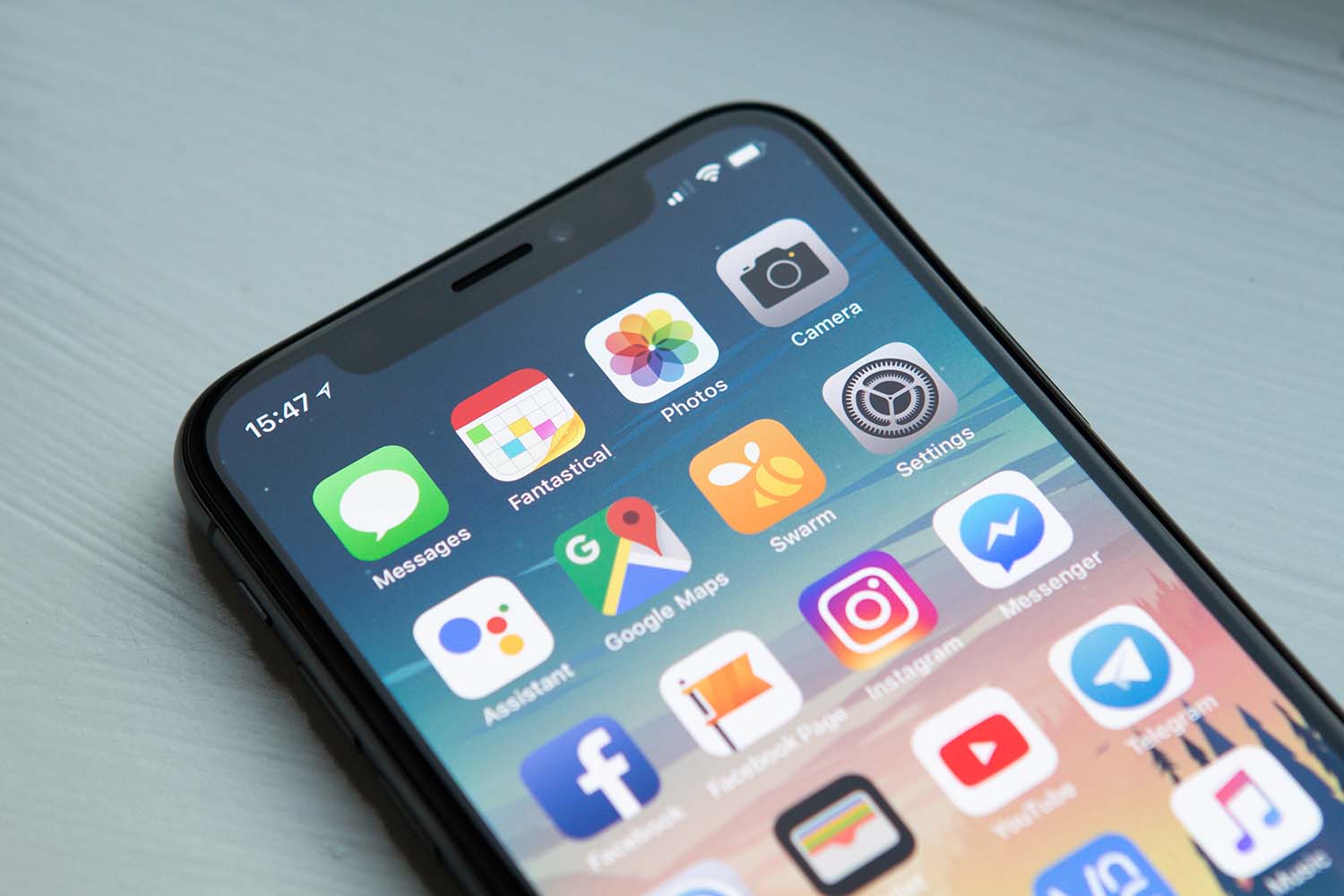
Photo, William Hook.
2. Declutter your digital life: Technology is ubiquitous. It’s no exaggeration to say, many of us spend our lives glued to our smartphones. But, if the idea of switching off sends you into a cold sweat, don’t worry.
Here a few ideas to help you reduce the digital noise in your life:
— Set a day aside each week and disconnect. If this feels too extreme, start by unplugging for a few hours each week and build up.
— Declutter your devices. Remove old apps, ones you never use anymore, and anything that distracts you from life.
— Choose apps and plug-ins that enhance your life or improve your creativity or productivity.
— Switch off notifications. The interruptive ping that tells you your cat game needs attention is not only annoying but seriously interferes with concentration and productivity.
— Clean your inbox, regularly.
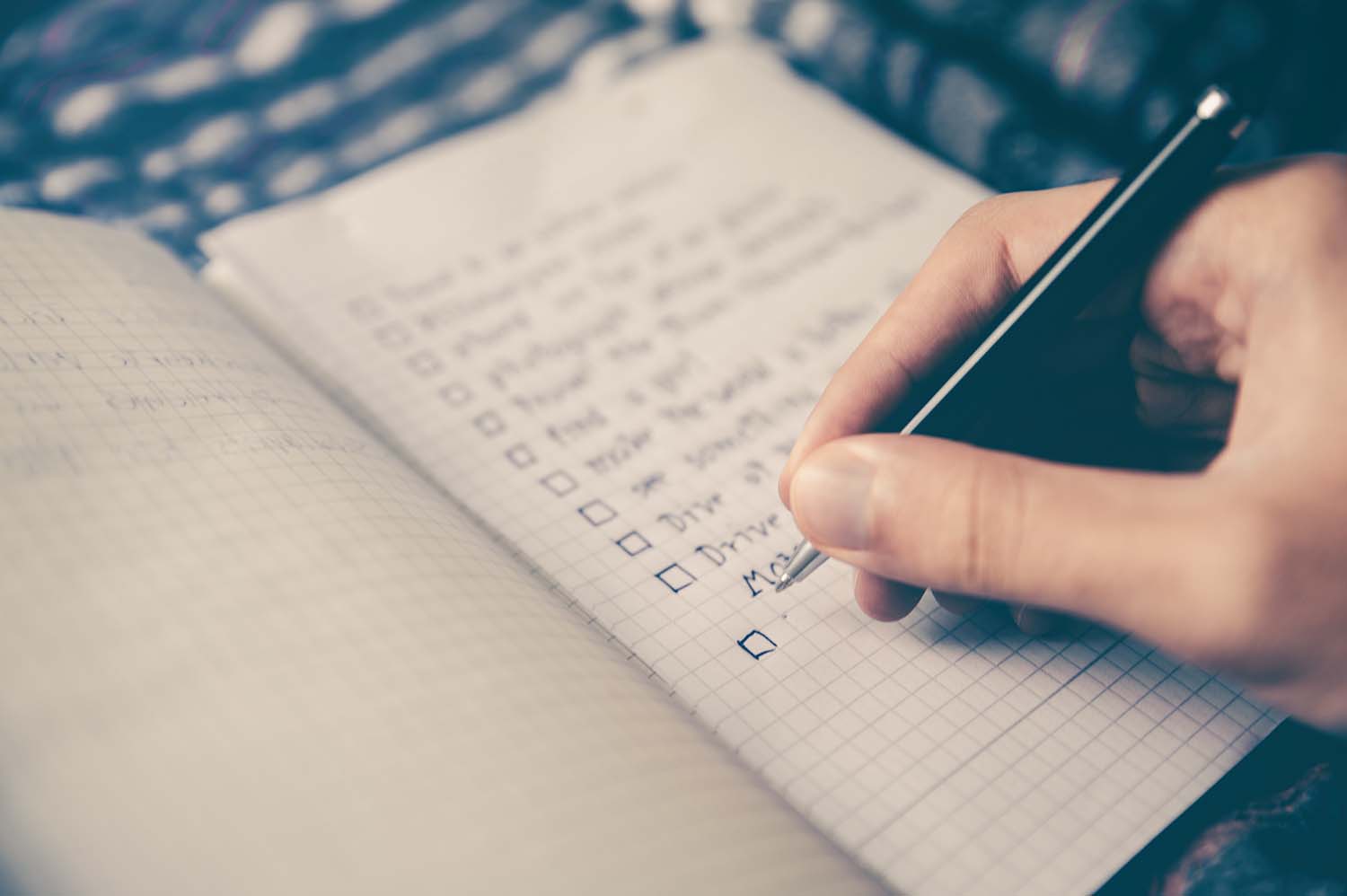
Photo, Glenn Carstens-Peters.
3. Prioritise your time: When you’re trying to juggle work, family, and a social life, it can certainly feel like there aren’t enough hours in the day. And, let’s face it there aren’t. But, having too much on your plate is a sure way to feel stressed. To help you declutter your day, start by prioritising your commitments. This can be really hard as you may feel like you’re letting people down. So, learn to identify what’s important, to you, and what isn’t.
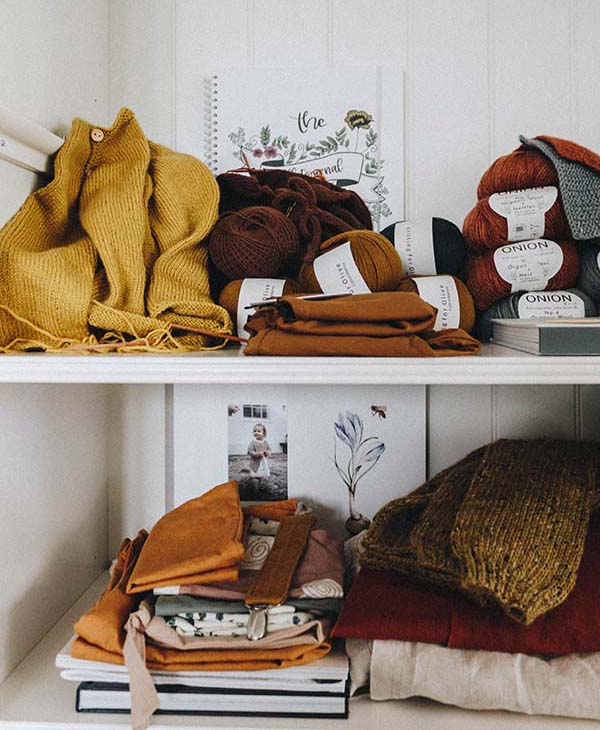
Photo, Nynne Schrøder.
For instance, look at each aspect of your life—job, family and personal time. For each area, list around five things that are important. Then you can focus on these and declutter activities that don’t add value to you and your life.
4. Create new healthy habits: Decluttering isn’t a thing you do once, and then it’s over. Instead, it’s a habit or a new lifestyle choice. When embarking on your declutter journey for the first time, it can feel very daunting. By incorporating into your daily routine, it will soon feel normal and become something you look forward to doing.
Here are a few tips to help you make decluttering a habit:
— Identify where the majority of your clutter originates. For instance, do you have a penchant for buying gardening paraphernalia or are you a book hoarder? Understanding your behaviours will help you better manage your shopping compulsions.
— Be aware of what spaces your clutter gathers in and create appropriate storage systems.
— Create a special place for important things like car keys and credit cards.
— Recycle regularly.
— Set one afternoon aside each month to declutter.
— Give stuff away and say no to free stuff.
With more space in your home and less digital baggage, you can create more flow in your life. And, this means more time to do things you love and enjoy.







